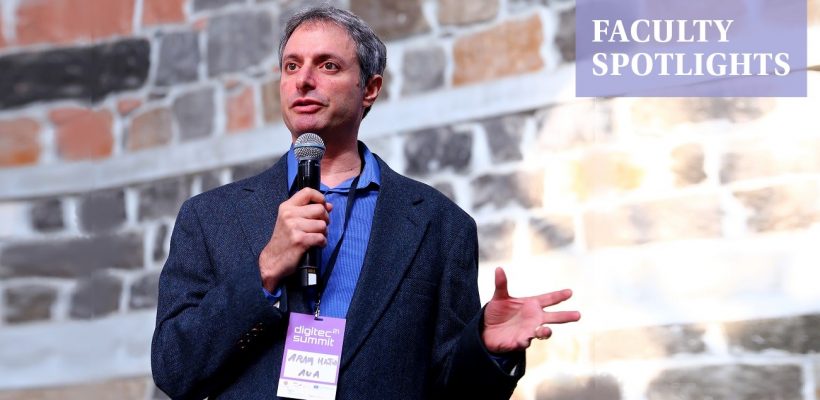
No Return to Traditional University Education?
3 min readAssociate Professor Dr. Aram Hajian, dean of the Akian College of Science and Engineering (CSE) and director of the Engineering Research Center (ERC) at the American University of Armenia (AUA), explored how COVID-19 and its aftermath have influenced the university reality during the recent DigiWeek21 Venture Summit. Is there no return to traditional university education? In his speech, Dr. Hajian provided avant-garde views that we present below.
What was the hardest part about moving university classes online? What was the biggest challenge and why?
The hardest challenge when COVID-19 hit was the unexpected nature of it all. Things were quite different a semester later. While still online, this time it was planned online that the instructors taught. Going online overnight when COVID-19 first hit for many meant taking their offline (conventional, face-to-face) course and moving it to Zoom. Designing an online course has its own nuances, but it also allows for activities that are good substitutes for what would no longer work well in an online format. Planning in advance helps take advantage of some of those trade-offs.
How do you think your students have adapted? How concerned are you about AUA students’ academic growth? What could be done to preempt potentially negative post-COVID-19 influences on university education?
Some students have responded wonderfully, embracing one of the upsides of online education, while others have fallen behind. Self-discipline is of great importance, as is self-motivation, because the temptation to connect to Zoom, and then zone out during class is always present. Regardless, many students are able to take advantage of the upside of online learning (no travel to/from campus, potentially fewer distractions from common classroom interactions, etc.). Time will tell how the overall academic growth has been, but there are legitimate concerns that there may be a dropoff in learning in the recent past. How much of that is attributed to online learning as opposed to other reasons, such as the psychological impact of COVID-19 and the Artsakh war, and other factors related to these two proximate causes, remains to be seen.
How difficult or easy has it been for AUA to implement the COVID-19-related safety measures and protocols in the building?
Implementation of the measures and protocols has been a challenge for AUA. The messaging from the government has been ambiguous, sometimes shooting at a moving target, and also our University community has been slow to adopt behavioral changes in the face of these challenges. As in most places, it is a work in progress.
What conclusions can we draw? Are we up to the point where there is no return to traditional university education?
I believe that universities are quite resilient institutions, and any discussion of their demise — to borrow a phrase — is premature. While technology has always impacted university processes (examples include transportation that allowed students or faculty from faraway places to study at a given university, computers that spawned digitization and computation, and internet that revolutionized information access, our libraries, connectivity, etc.), there is no reason to think that this trend won’t continue. We will undoubtedly see lasting changes to university structures or processes when COVID-19 becomes a thing of the past — some permanent changes are to be expected. One possibility is the ‘commoditization’ of some courses — courses that have demonstrated effective outcomes in, for example, teaching Introduction to Shakespeare, or Differential Calculus, or Sociology 101. This may eliminate the need for every single university on earth to invest resources in designing, developing, and implementing similar basic courses, all of which, one may argue, in a redundant fashion. However, more advanced or specialized courses within the realms of experimentation and cross-pollination, the necessary socialization and development of interpersonal skills, the maturation and honing of dispositions needed to thrive in a complex world, are some of the many components of the value proposition that universities continue to bestow upon hundreds of millions of students worldwide each year. In short, technology will cause university disruption, not destruction.
